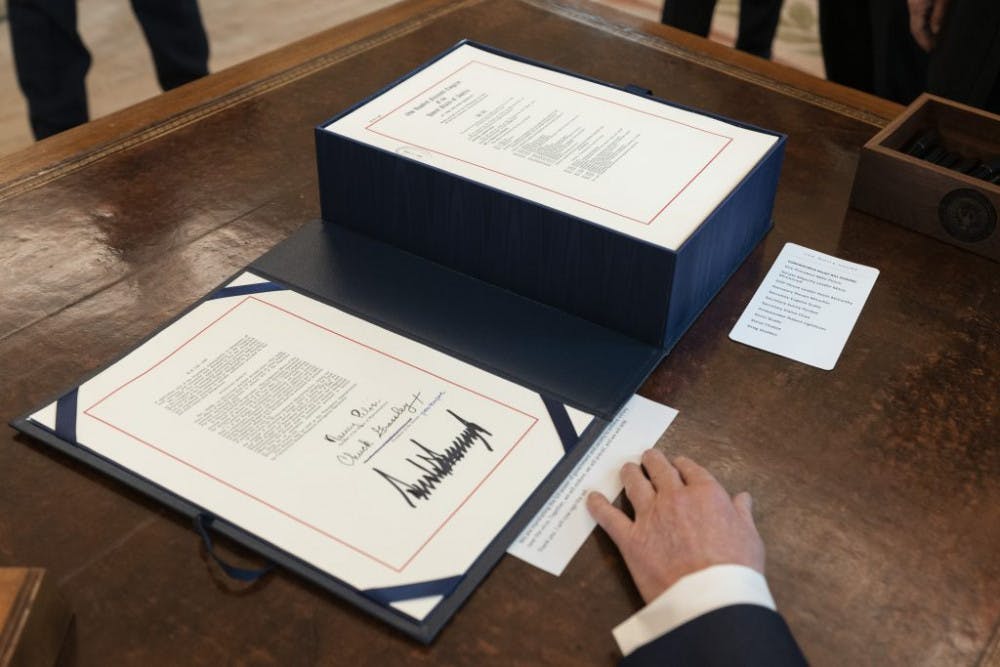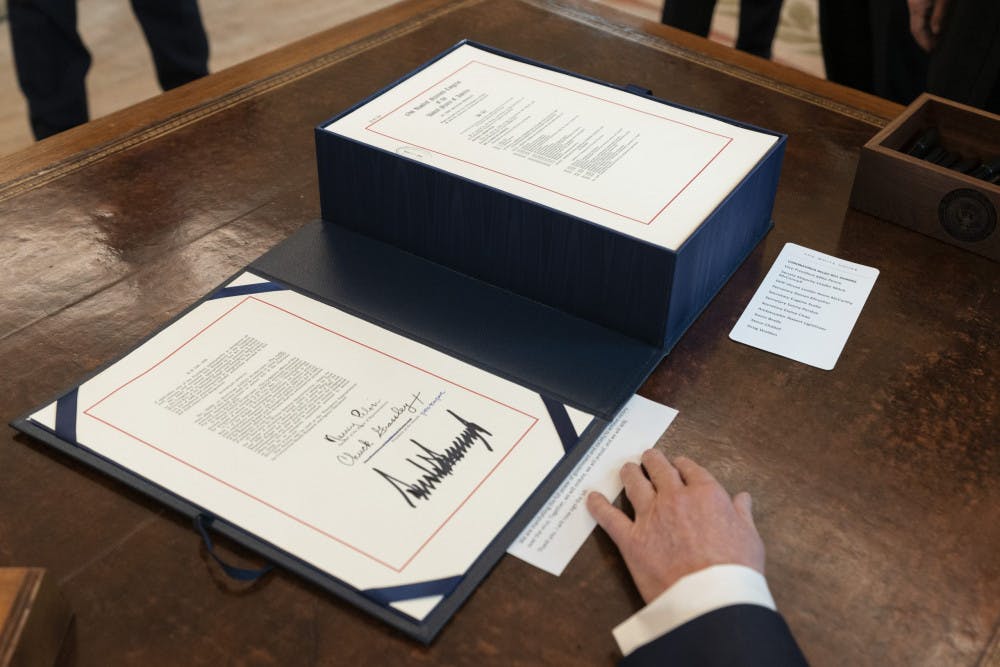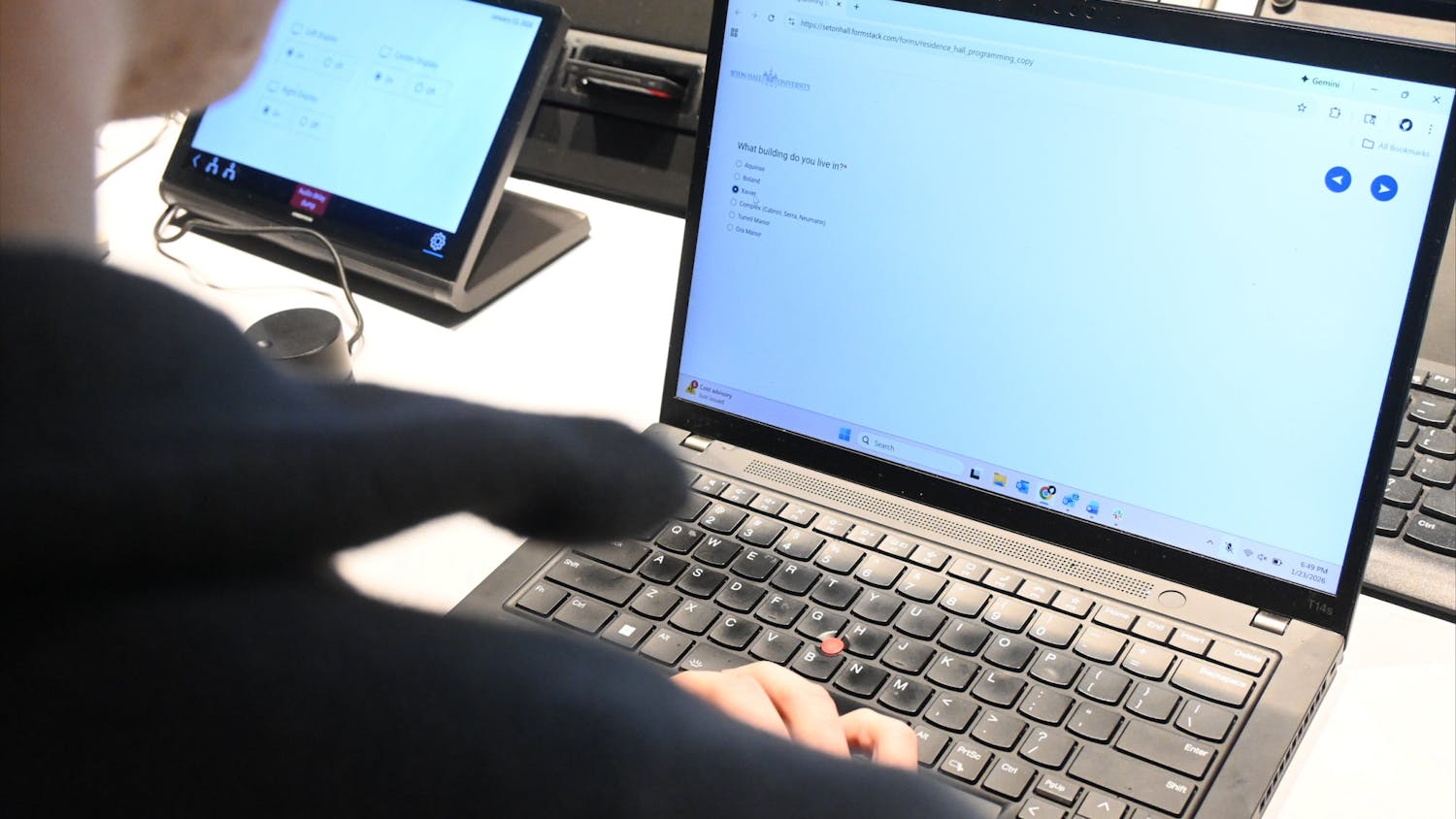Seton Hall will accept $5.7 million allocated to the University by the Coronavirus Aid, Relief and Economic Security Act, $2.8 million of which has been earmarked by the Department of Education to be disbursed to students. The news comes as Seton Hall announced Monday that it would furlough 150 employees amid financial unease brought on by the coronavirus pandemic.
The Federal stimulus package, known colloquially as the CARES Act, includes roughly $12.6 billion in aid to be distributed to colleges and universities using a formula based on student enrollment, according to an April 9 letter from Secretary of Education Betsy DeVos.

After each college receives its allotment, the Department of Education leaves it up to individual institutions to decide how to disburse the funds, though the CARES Act stipulates that at least 50% of its allotment must go to a student emergency fund to assist students who were impacted financially by the coronavirus pandemic. According to records released by the Department of Education, Seton Hall must allocate at least $2,874,959 dollars to its student emergency fund.
Seton Hall plans to automatically allocate $2.1 million – or 75% of its student fund – to Pell Grant-eligible students, citing the fact that 75% of the University’s CARES Act grant funding was based on the size of that student population and has committed to doing so by the end of May.
The remaining 25%, approximately $718,000, will go to 957 individual one-time grants of $750 for eligible students to apply for. Federal law requires that to receive the grants, students must also “be eligible for Title IV aid, have a FAFSA on file, and were enrolled during Spring Semester 2020 for coursework that was not primarily online at the start of the semester,” with priority being given to the financially neediest students.
According to a University press release announcing the funding for students, money “should be used for eligible expenses related to a campus disruption and could be used to cover food, housing, course materials, technology, health care or childcare” and should demonstrate financial hardship related to COVID-19, such as loss of income.
Students notably ineligible for the individual grants: international students and undocumented students, including DACA recipients. Seton Hall did not announce if there would be other avenues those students could pursue, though the school has advertised in the past that it has a student emergency fund available for impacted students separate from CARE Act funding, though its unclear how much money that fund possesses.
The remaining $2.9 millions in the fund is for Seton Hall to cover costs associated with “significant changes to the delivery of instruction due to the coronavirus,” according to the Department of Education, though it is not yet clear how Seton Hall plans to use those funds.
Other universities, such as Harvard – which received intense backlash from students and elected officials after accepting nearly $9 million in CARES Act funding despite having a multi-billion-dollar endowment – committed to providing 100% of its stimulus allotment to student aid before forgoing the money altogether.
According to the University, Seton Hall President Dr. Joseph Nyre convened a committee of University administrators to begin monitoring the CARES Act and analyzing related guidance to create the formula now being used to disburse the funding.
“We recognize the tremendous financial strain the coronavirus pandemic has put on our students,” Dr. Alyssa McCloud, a CARES Act committee member and Senior Vice President of Enrollment Management, noted. “We believe that distributing these funds as efficiently and expeditiously as possible is both financially important and reflective of the Catholic mission and values we hold as a University community.”
Nicholas Kerr can be reached at nicholas.kerr@student.shu.edu. Find him on Twitter @NickKerr99.





